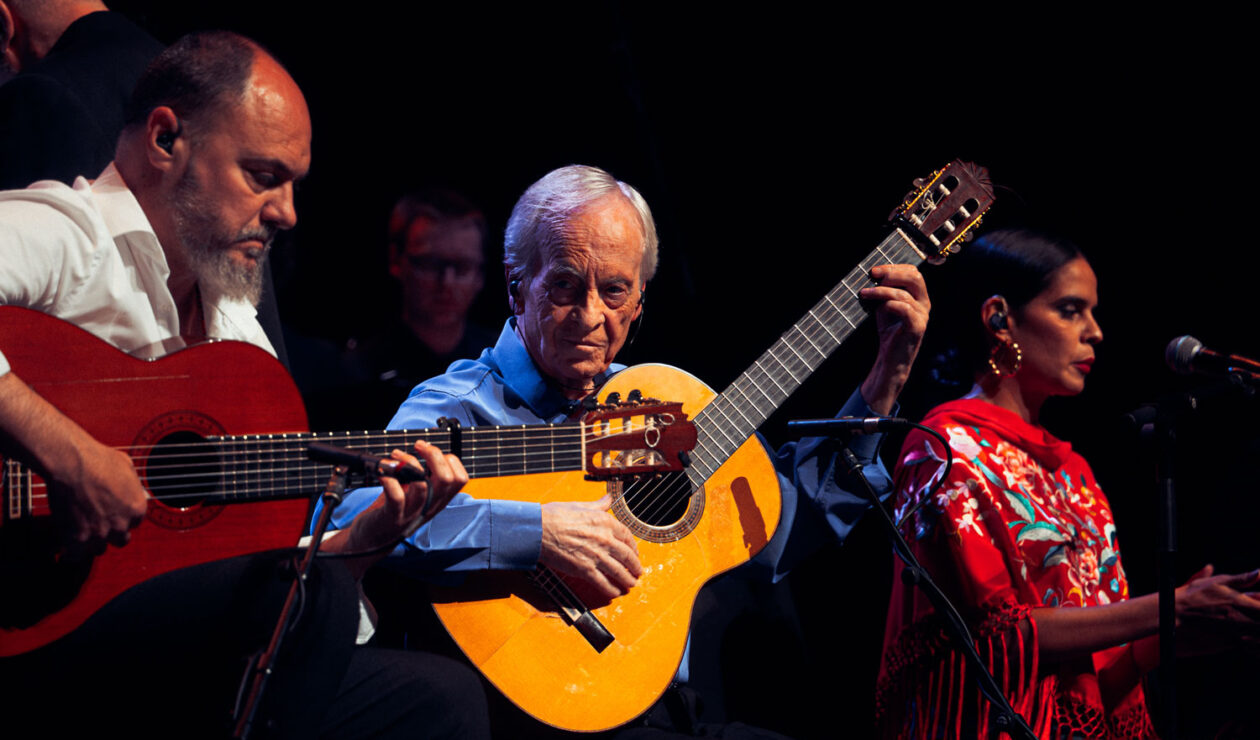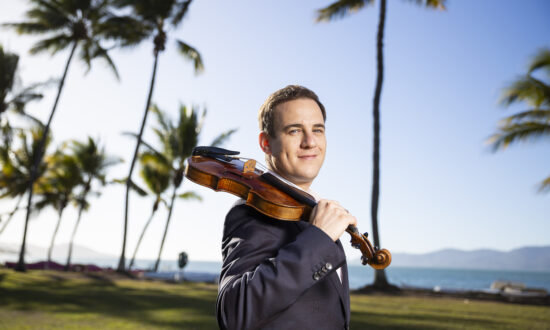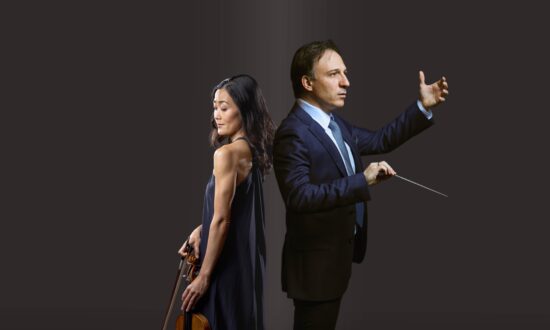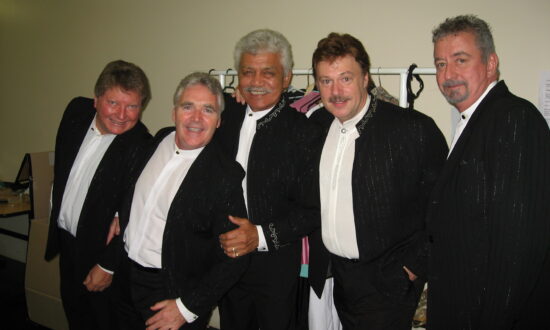Queensland’s strong Aurora Guitar Ensemble presented five pieces composed by its conductor and musical director, Paul Svoboda, as a prelude to Peña’s Requiem. These were as uplifting as the obvious pleasure that the young players were taking.
Peña argues the value of flamenco music’s “honesty and sincerity” for conveying the heartfelt purpose of the Requiem, which he composed 20 years ago. There is nothing coy or indirect about its purpose: a call to action to save the natural world of this planet.
Its structure is broadly that of a requiem mass, a liturgy for use at funerals and memorials. Peña’s Requiem is a significant work in 12 movements and while often solemn, speaking to what is lost, it also celebrates what can yet be saved. It blends mainly traditional Latin pieces, including one based on a hymn by Homer, with more contemporary elements.
Peña’s own superb guitar playing was supported by the accomplished Rafael Montilla and Benito Bernal Díaz, underpinned by Julio Alcocer’s marvellous percussion. A tight group of two male and two female singers (Bernardo Miranda, Inmaculada Rivero Cinta, Rafael Plantón Heredia, and Maria de los Angeles Martínez Toledano) took turns to solo at various times as well as singing in unison.
The lyrical opening piece, “Sentimiento”, quickly built into an emotional and confronting vocal lament before the traditional “Kyrie”, which brought the 25-person Rising Voices choir (with support from the Adelaide Chamber Singers) into play. They added a sense of majesty, but seemed a little bass-heavy at times (perhaps due to the sound mix).
The pace accelerated with “Dies Irae” and its demand for us to answer to what has become of the world. Alcocer gave a dazzling percussion solo, his cajón drum a key factor, but it was Peña’s scintillating runs on the fretboard that drew as many cheers.
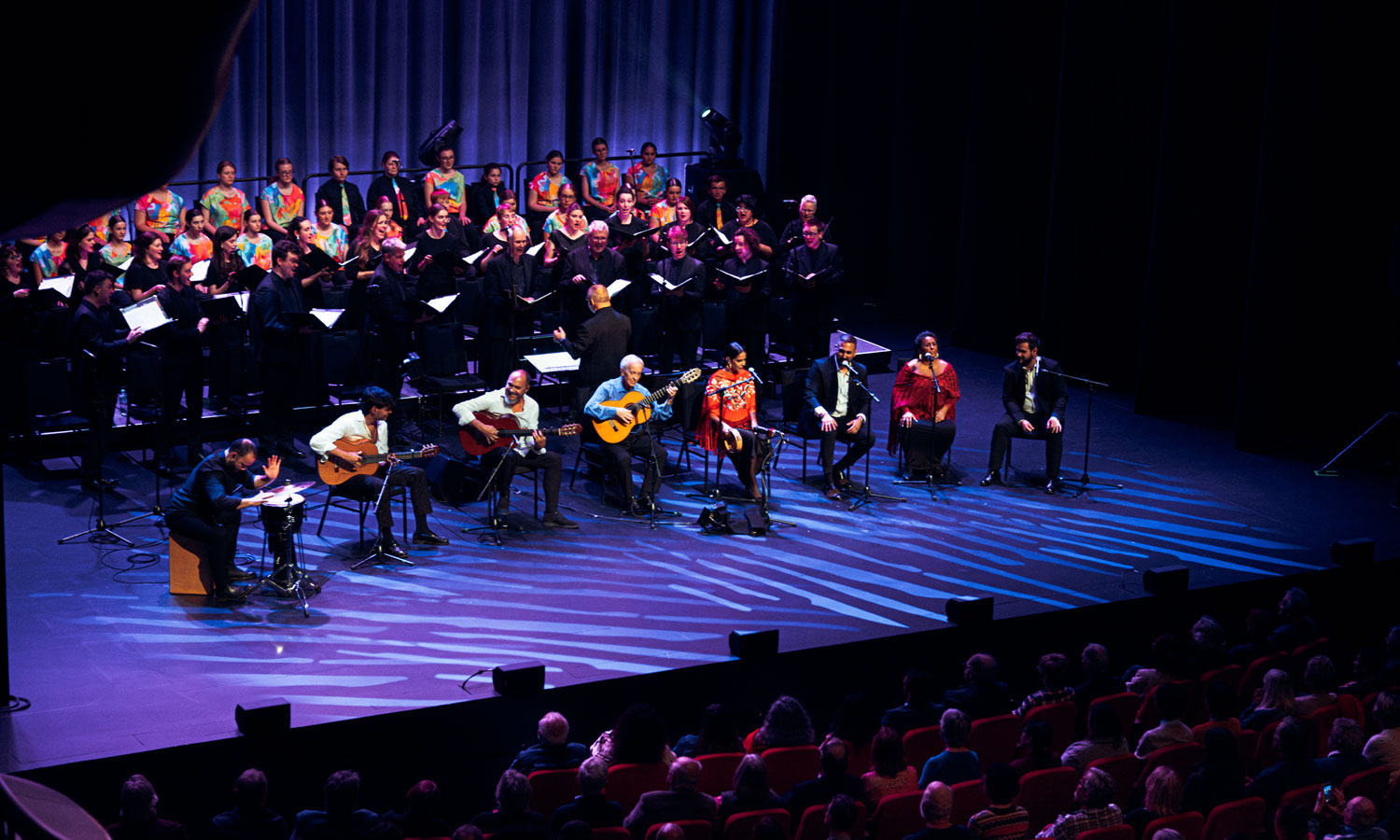
Requiem for the Earth at Her Majesty’s Theatre. Photo: Kyham Ross
Most of the pieces that followed were pleas for salvation at a time of judgment; in other words, to be recognised for good faith and treated mercifully. This type of hymn, essentially statements of humility, would be familiar to church-goers. The subtext, however, could well be: “Do I deserve being excused?”

Get InReview in your inbox – free each Saturday. Local arts and culture – covered.
Thanks for signing up to the InReview newsletter.
Interspersed were more modern pieces with a different approach, especially the “Alabanza” that mourn the natural world’s destruction while offering to sing its remaining glories, if not restore those lost.
Peña did not dominate. His fellow guitarists had opportunities to shine and the Requiem was clearly a co-operative effort in this regard. The whole ensemble exuded energy.
The Young Adelaide Voices added a vital and fresh accent in a few pieces, especially the closing “Esperanza”, with its optimistic outlook. While having children sing about children could seem an obvious inclusion, it was fitting, and their voices were lovely. Kudos to their conductors Christie Anderson (also artistic director) and Stephanie Eaton.
This note of hope to end Peña’s Requiem (apart from a stirring encore) was a positive and necessary one. It claims that we can still arrest the decline of the natural world. What better use for music?
The standing ovation was perfectly justified for this five-star performance.
Paco Peña – Requiem for the Earth was presented for one night only at Her Majesty’s Theatre as part of the 2024 Adelaide Guitar Festival, which continues until September 29.
Support local arts journalism
Your support will help us continue the important work of InReview in publishing free professional journalism that celebrates, interrogates and amplifies arts and culture in South Australia.
Donate Here
